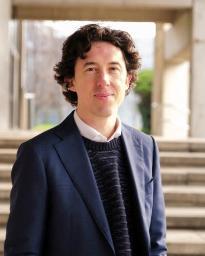Major European Grant for Dr. Irial Glynn's Project on Boat Refugees
 Dr (opens in a new window)Irial Glynn, Assistant Professor at UCD School of History, will receive funding for his study entitled ‘Solidarity, Sovereignty and Sanctuary on the Seas: A Global History of Boat Refugees since 1945’.
Dr (opens in a new window)Irial Glynn, Assistant Professor at UCD School of History, will receive funding for his study entitled ‘Solidarity, Sovereignty and Sanctuary on the Seas: A Global History of Boat Refugees since 1945’.
This project will investigate the history of boat refugees since the 1940s, asking who hinders and who helps asylum seekers on their journeys, and why.
In 2015, over one million refugees sailed across the Mediterranean, but this was not the first time that people took to the seas in search of asylum. During the 1940s, Jewish boat refugees voyaged across the Mediterranean; in the 1970s and 1980s, Vietnamese boat people traversed the South China Sea; in the 1980s and 1990s, Cubans and Haitians tried to navigate the Caribbean to reach the US; and in the 1990s and 2000s, boat refugees sailed across the Indian Ocean, the Gulf of Aden and the Mediterranean in an attempt to reach Australia, Yemen, and Europe. Yet references to the past are almost non-existent in contemporary discussions.
“Anyone following the news lately knows”, Dr Glynn commented, “that the issue of boat refugees is an urgent topic. For instance, President Michael D. Higgins raised the issue during his visit to Senegal in late January. This ERC Consolidator grant will make it possible to compare the journeys, experiences and reception of boat refugees since the 1940s. The project will draw on oral and written testimonies of boat refugees to articulate their experience and to place them at the heart of the analysis. States still dominate histories of refugees. ‘SOS’ will challenge this by humanising the refugee journey and, in doing so, show how messy and complicated refugeehood was and still is.”
Prof. William Mulligan, the head of the School of History, noted that Dr Glynn's project radically reframes the questions scholars ask, opens up new sources, and brings to the fore marginalised voices in the history of refugees.
Dr Glynn said: “I am very grateful to the ERC for giving me this opportunity, and for the assistance I received from UCD Research and the School of History, as well as from my former colleagues in the Institute for History at Leiden University.”